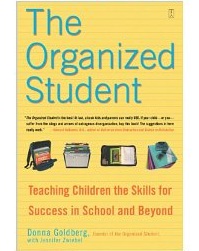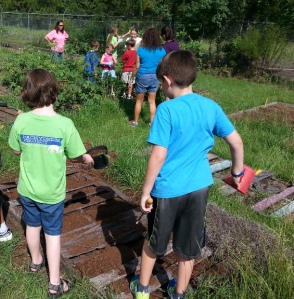#1 Independence
“The most important thing that parents can teach their children is how to get along without them.” – Frank A. Clark
Sometimes children get this “deer in the headlights” look when they don’t see their parent, grandparent, etc. in sight. This is acceptable at ages 4-5, but once they get to age 6 and higher they really need to learn to be okay with having another adult in charge. Some of you may think this is obvious, but for many homeschooling families the children just aren’t left with any adults other than the grandparents or another close relative.
Here are some easy ways to help your children get accustomed to not always having mom or dad in the room.
- Have the kids join a co-op class where you are NOT in the room. Perhaps you help in another room at co-op instead.
- Take them to Sunday School regularly
- Take them to Vacation Bible School (I know it’s only 1 week, but they will learn some independence in just that 1 week.
- Let them join Boy Scouts, Girls Scouts, AWANA, American Heritage Girls, 4H, or one of the other clubs that meet regularly.
- Sign them up for a summer day camp, or similar week-long half day or whole day program.
#2 Basic Safety Knowledge – Not Just 911
 Too often homeschool parents put off safety knowledge until their children are older. But why? Children age 4 and up should know their full name, birth date, parent’s first names, parent’s cell phone #s, and their address. Think this is too much for a 4 or 5 year old to know? It’s not! Try putting your phone number or address to a favorite tune. You’ll be surprised at how quickly they learn it.
Too often homeschool parents put off safety knowledge until their children are older. But why? Children age 4 and up should know their full name, birth date, parent’s first names, parent’s cell phone #s, and their address. Think this is too much for a 4 or 5 year old to know? It’s not! Try putting your phone number or address to a favorite tune. You’ll be surprised at how quickly they learn it.
For children age 8 and up: be sure they know the phone number of a nearby relative or neighbor you trust. A list of important phone numbers on the refrigerator is a great thing to have as well. Just make sure it’s low enough for the children to easily see it and keep it up to date. Things happen and it’s best to have your children well prepared.
Add to this, children as young as 3 should be taught about gun safety, fire safety, and water safety. When visiting friends and family it’s very easy for young children to come across a gun if it isn’t locked out of sight. Don’t assume others will keep your child safe. Teach your children the skills they need, so they’ll know how to react in advance.
#3 Speaking Skills
Make public speeches a regular part of learning. Perhaps have your child stand up and recite a poem or sing about prepositions in front of their grandparents or in front of a co-op class. Don’t let this be just a once in a blue moon activity though. Requiring it at least once a month would be best. Children need this very important life skill. This will help them build their confidence, learn to speak clearly and at the correct volume, as well as how to make eye contact with the audience. Start them young and they will continue to improve as they get older.
#4 Organizational Skills
 Children need to learn to be responsible with their books, papers, art supplies, sports equipment, etc. If you are always packing their bag for them or cleaning and organizing their work space what will they do when they get to college? Would your child lose some important book or paperwork if you didn’t organize for them? Perhaps, but it would be a valuable lesson learned and in cleaning up their own stuff they can find what they need.
Children need to learn to be responsible with their books, papers, art supplies, sports equipment, etc. If you are always packing their bag for them or cleaning and organizing their work space what will they do when they get to college? Would your child lose some important book or paperwork if you didn’t organize for them? Perhaps, but it would be a valuable lesson learned and in cleaning up their own stuff they can find what they need.
I’m not suggesting you leave them to their own devices, but help them find ways to organize things. Suggest ways they can organize books on a bookshelf, or have them help you re-organize the kitchen cabinets. Here’s a great article that may help. Organizational Skills If you’re looking for a book to help you teach your middle-high school age child organizational skills I recommend The Organized Student.
#5 Finance
Understanding finance is important for everyone. From a very young age children should be taught the importance of money. They need to understand how hard it is to earn it and how to use their money wisely. Too often parents teach children to “save” their money when they should be teaching them how to “invest” their money. I highly recommend the book Growing Money: A Complete Investing Guide for Kids
Also, here’s a brief list of some great financial books and blogs for teens: Financial Reading Your Teen Won’t Tune Out Don’t worry, they aren’t all books.
#6 Making Friends
 This might seem very basic, but for many children making friends is difficult. While some of the homeschooled children I’ve met are quite outgoing, others just don’t seem to have the skills it takes to approach an unknown child and start up a conversation. Teach your child to approach another child with a smile and say something like, “Hi, I’m Sarah, what’s your name?” Then they could say something like, “Have you seen the movie ________?” (a popular new movie) or “I really like your _________.” (hair, shoes, shirt, necklace, etc.)
This might seem very basic, but for many children making friends is difficult. While some of the homeschooled children I’ve met are quite outgoing, others just don’t seem to have the skills it takes to approach an unknown child and start up a conversation. Teach your child to approach another child with a smile and say something like, “Hi, I’m Sarah, what’s your name?” Then they could say something like, “Have you seen the movie ________?” (a popular new movie) or “I really like your _________.” (hair, shoes, shirt, necklace, etc.)
After basic introductions teach your children to invite others to come play with them by saying something like, “Do you want to play basketball?” or “Anyone want to have a turn on my ______ game?” (tablet or smartphone game).
Role playing while teaching these scenarios is the key to getting your child more comfortable with meeting others. Start off pretending to be your child while he/she pretends to be another child. Go through some of the scenarios above or create your own, then reverse roles. It may always be difficult for them to make friends, but with practice it will get better.
***This post contains some affiliate links. Please read my Disclosure Policy for more info.
Did you like this post? If so please leave a comment. Thanks!
